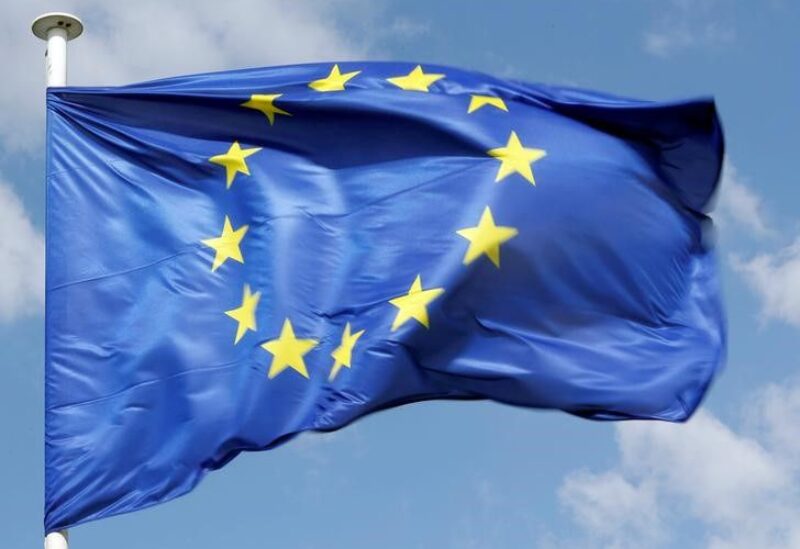
European flag is pictured in Blagnac near Toulouse, France March 21, 2018. REUTERS/Regis Duvignau
Littered with exemptions and derogations for a number of member states, a deal to reduce gas consumption by 15% was signed off by EU Energy ministers
The Czech presidency of the EU dragged EU energy ministers to an emergency meeting in Brussels on Tuesday to try to find unity on a proposal which was only proposed by the European Commission a week ago but had already exposed deep divisions between EU countries.
While a deal was cobbled together, it was followed by a crucial caveat — that they could do it “with measures of their own choice.’
The original proposal sought to allow Brussels the ability to trigger an emergency alert that would have required “mandatory gas demand reduction” throughout the bloc.
What has been agreed is quite different.
A so-called Union Alert can only be triggered if five or more member states declare an alert at national level, or if the European Council which is the EU body made up of the national governments, tells the Commission to do so.
The EU Commission can propose to launch a “Union Alert” but the governments will have to approve it.
North-South Divide
The battles over the proposal began when countries which do not have a heavy reliance on Russian gas, like Spain and Portugal, started raising concerns about what the 15% reduction would mean for their citizens.
“To be politically viable in a context of looming gas shortages, high energy prices and overall recession risks, EU energy solidarity needs to be realistically arranged,” Simone Tagliapietra, a senior fellow at the economics think tank Bruegel, told DW.
Those countries have been placated with a number of exemptions and derogations. Countries which are not connected to others’ gas networks like the island nations of Ireland, Malta and Cyprus are exempt and nations can drop out of the responsibilities if they are overshooting their storage targets.
“The EU needs to establish a compensation mechanism aimed at providing fair payments to EU-relevant gas supply and demand options made available by certain countries to the most vulnerable ones,” Tagliapietra said. “Now is not the moment to revive an old South-North split and allow Putin’s divide-and-rule strategy to work.”
Hungary — the EU’s most pro-Russia country — was the only member state to vote against the agreement. Indeed, last week, Hungarian Foreign Minister Peter Szijjarto went to Moscow to try to secure an increase in their supply of Russian gas.
When asked about Hungary, Czech Deputy Prime Minister Jozef Sikela told reporters in Brussels he did not want to discuss the position of single state.
“We have a clear alignment, clear solidarity, and we want to send a clear signal to the world and to the Kremlin,” he said.
Germany is heavily reliant on Russian gas imports and facing repeated reductions of deliveries through the Nord Stream 1 pipeline. Russia has announced that as of Wednesday it will further slash gas supplies through the pipeline by 20%, down from 40%.
“Brussels faces no political consequences from potentially rationing gas, but it can be deadly to a national government,” Jacob Funk Kirkegaard, a senior fellow at the German Marshall Fund, told DW. “Many member states have also diversified away from Russian gas, while Germany of course has not, and politically must pay a price.”
German Economy Minister Robert Habeck, who attended the Energy Council in Brussels, said the agreement would show Russian President Vladimir Putin that Europe remained united in the face of Moscow’s latest gas cuts.
“You will not split us,” he said.
According to the climate think tank E3G, 50% of all of the EU’s total gas consumption is in the bloc’s three biggest economies of Germany, France and Italy. However, the German Marshall Fund’s Kirkegaard is relatively upbeat about the prospect of the deal.
“Germany will do disproportionately more to reduce demands”, he said. “Overall, it will limit EU demand and need for winter rationing enough to blunt the worst economic downside.”